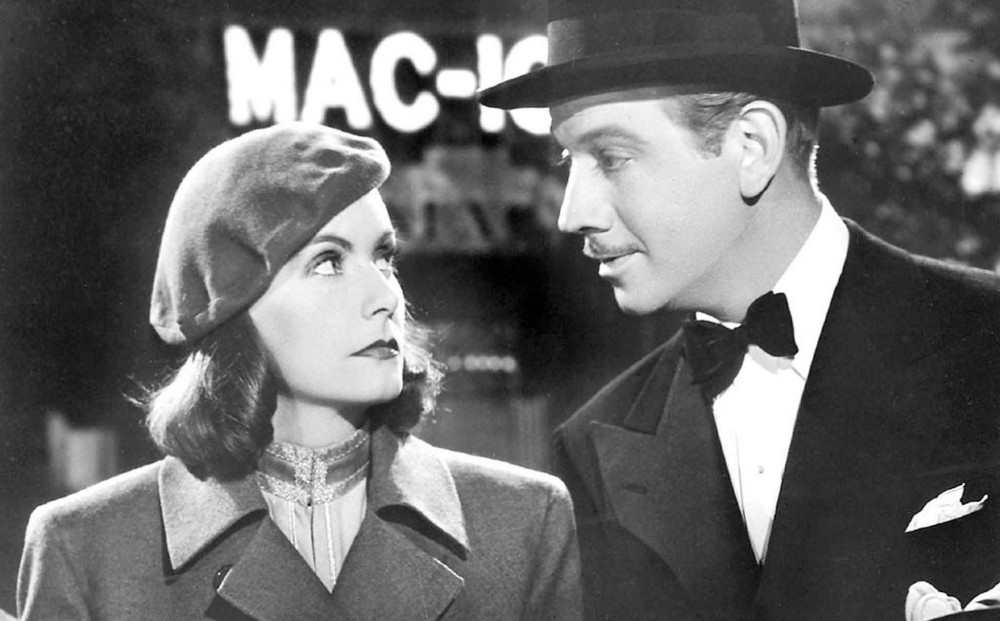Lubitsch’s NINOTCHKA
12:30 2:40 6:50
Final Day - Tuesday, June 27
(1939) “GARBO LAUGHS!” In Paris to sell off Grand Duchess Ina Claire’s state-confiscated jewels, bumbling Soviet emissaries Iranoff, Buljanoff, and Kopalski (Sig Rumann, Felix Bressart, and Alexander Granash) are just reveling in that room service (“You know what happens when you you ring three times? A maid comes in!”) at the über-capitalist Hotel Clarence, so the Kremlin sends off grim “envoy extraordinary” Greta Garbo (“The last mass trials were a great success. There are going to be fewer but better Russians.”) to get them sweating borscht. But then Count Melvyn Douglas seduces her with champagne, an unintended pratfall, and the joie du chapeau. Garbo’s first comedy proved to be her greatest success, thanks to the fabled “Lubitsch Touch” and a cynically satirical script by Billy Wilder, Charles Brackett, and Walter Reisch. 35mm. Approx. 110 min.
Reviews
“Weds the understated virtuosity of Lubitsch’s direction to the unabashed wisecracking script.”
– Michael Sragow
“From the moment she steps off a train in her commissar’s costume, Garbo’s exquisite gravity of expression and metronomic doomsday delivery of her lines are as profoundly hilarious as anything in the history of talking pictures. Reviewers of the time debated solemnly whether the movie was harder on the Communists or the Capitalists, but there was little disagreement on the quicksilver brilliance of Garbo’s portrayal of an icy ideologue melted by bourgeois affability… The instant shift in her great drunk scene from light farce to light pathos without missing a beat of conviction is a moment of rare sublimity.”
– Andrew Sarris
“Exquisitely done, so much so that even communists might enjoy this parody of their sensibilities.”
– Eric Monder, Film Journal
“GLORIOUS! Ninotchka is delicate flirtation and political satire made into a perfect whole, and a reminder of skills that studio writers have largely lost. In their moment, the film’s Stalin jokes got bigger yuks than they do now, but sublimely, the sense of romantic dislocation has lost none of its swirl or heat.”
– Joshua Rothkopf, Time Out New York
“Ample comic references to executions, forced confessions, Siberian prisons, censorship, and the secret police are matched by a sharp scene evoking the corrupt and bloodthirsty arrogance of the czarist aristocracy that the Revolution overthrew—as well as two jolting, pointed “Heil, Hitler” jokes that spotlight another menace.”
– Richard Brody, The New Yorker
“Has the nonchalance and the sophistication that were Lubitsch’s trademarks.”
– Pauline Kael
“Stalin won’t like it.”
– The New York Times

